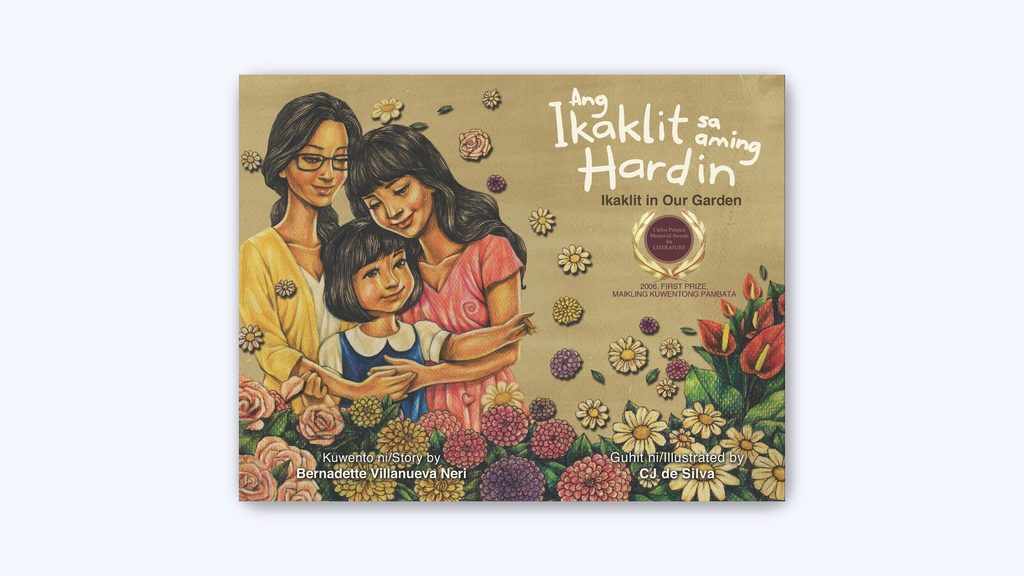SUMMARY
This is AI generated summarization, which may have errors. For context, always refer to the full article.
![[#RapplerReads] A colorful tale about a young girl growing up with two mothers](https://www.rappler.com/tachyon/2022/05/rappler-reads-ikaklit-sa-aming-hardin.jpg)
Editor’s note: #RapplerReads is a project of the BrandRap team. We earn a commission every time you shop through the affiliate links below.
“Bakit dalawa ang nanay mo?”
This is one of the questions Ikaklit’s classmates asked when they found out that she has two mothers instead of a mother and father. Since then, the young girl has been bullied and teased by her classmates at school, calling her names like tomboy and putok sa buho – a Filipino idiom which means anak sa labas (illegitimate child).
At first, the young girl didn’t understand why her classmates mocked her family. She didn’t know how to respond to them either, especially when she realized that unlike her, most of her classmates grew up in a family with a mother and father. Why did she grow up without a father? Does having two mothers make her family incomplete? The young girl asked herself, and then her parents Nay Lilia and Nay Daisy.
“A family is like a garden. Who planted the seeds is not important. It also doesn’t matter whether a woman or a man takes care of them. What’s vital is how well the garden is tended,” Nay Lilia answered.
In Ikaklit in Our Garden, nurturing a family is compared to tending a garden. Like gardening, raising a family requires effort, love, and care. One plants the seeds beneath the soil, regularly waters the plants, and exposes them to sunlight. And this nurturing applies to all kinds of families, whether one has a mother and a father or two mothers (or fathers).

The Palanca award-winning story of Bernadette Neri plants enlightenment and wonder in readers by acknowledging non-traditional family forms in society. In a dominantly conservative country like the Philippines, however, it’s a topic that may be deemed taboo or too difficult for young readers to understand.
In the eyes of the law, a family consists of a husband, wife, and children. The same concept is also taught in schools, where only nuclear and extended families are recognized as “normal” and “acceptable”. Families outside the traditional setup, like those that blossom from LGBTQ+ relationships, are often discriminated against and are put in a bad light.
Unfortunately, in such situations children are affected the most – as depicted in Ikaklit in Our Garden, where the young girl had to suffer from bullying in school for having two mothers.
Times are changing, and literature is one of the tools we use to reflect this change. Through stories, we help children hone their critical thinking skills and enrich their knowledge about the world they live in. It is also through reading books that children learn to cope with life’s challenges. They see themselves in stories and read about characters from all walks of life that they can relate to and draw inspiration from.
After reading Ikaklit in Our Garden, I realized that we need more children’s books in the country that shed light on sensitive topics like children being part of non-traditional families. Such books can be used by teachers and parents to discuss empathy and acceptance with young readers. This way, incidents of bullying and discrimination can be prevented in schools and more safe spaces are created for children.
In fact, the simplicity and clarity of the author’s storytelling make the book a suitable material for kids (or kids at heart) to understand non-traditional families in society.
Every page of the book also features CJ de Silva’s colorful illustrations of flowers – from roses, daisies, zinnia, and magnolia, to chrysanthemum. There’s also the ikaklit, the flower from which the young girl was named after. In the latter part of the book, we learn that ikaklit is the Bontoc word for sunflower.
Perhaps my favorite part in the story is when Ikaklit stood up against her bullies and didn’t believe the hurtful words they said anymore. Instead, she told them how her parents tell her bedtime stories, teach her assignments at home, and take her to beautiful places.
“If your mother and father love you, my two mothers also love me. So even if I don’t have a father, I know my family is complete because I have two mothers,” she said.
Families come in many different colors, shapes, and sizes, similar to the flowers we see in the garden. At the end of the day, what truly defines a family is the love and acceptance that family members show to each other. – Rappler.com
Add a comment
How does this make you feel?






![[OPINION] Where are the community libraries 30 years after we passed the law?](https://www.rappler.com/tachyon/2024/06/tl-barangay-public-libraries.jpg?resize=257%2C257&crop=195px%2C0px%2C720px%2C720px)



![[Two Pronged] I found out that my 13-year-old son has been exchanging explicit photos with his girlfriend](https://www.rappler.com/tachyon/2024/05/teenagers-may-25-2024.jpg?resize=257%2C257&crop=416px%2C0px%2C1080px%2C1080px)

![[OPINION] Development in the delay: Reflections on being a new mother](https://www.rappler.com/tachyon/2024/02/development-in-the-delay-february-12-2024.jpg?resize=257%2C257&crop=438px%2C0px%2C1080px%2C1080px)


There are no comments yet. Add your comment to start the conversation.